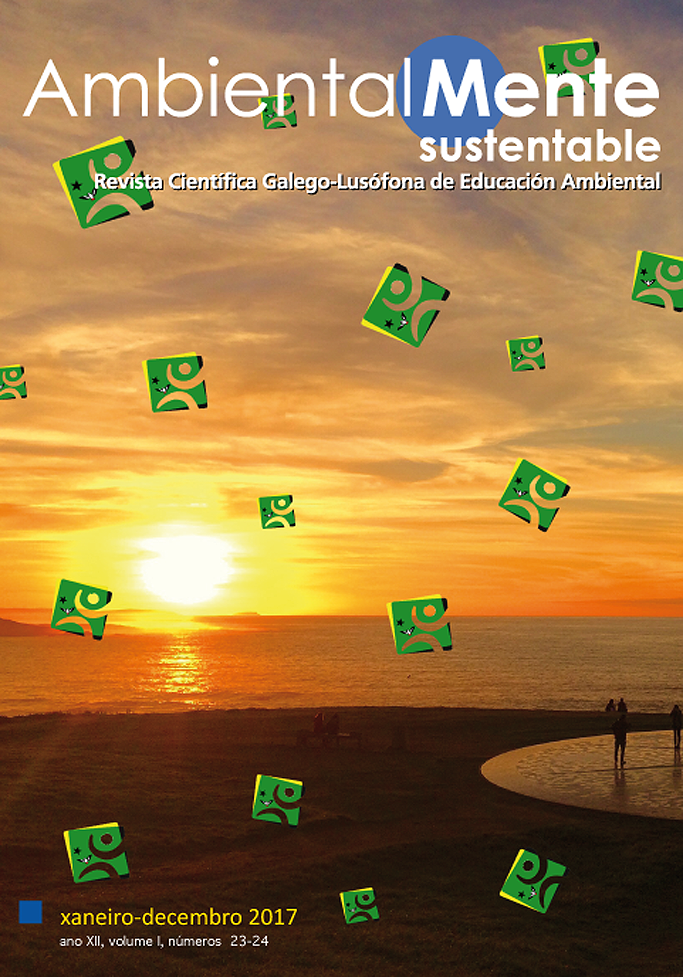The environmental education in the sustainability of life in a literacy experience of waste pickers
Main Article Content
Abstract
Inserted in the universe of environmental education this article presents a discussion, descending from a doctorate research, about the contribution of Environmental Education for the alphabetization and human formation among a classroom of workers in an union of solid waste collection in the city of Goiânia, Goiás, Brazil. The experience sought interfaces between the Environmental Education (EA) and Popular Education (PE), having as a reference the transversality, according to René Barbier, and the freeing education, as conceived by Paulo Freire. The participating observation, the circle of conversation and the interviews semi-structured were procedures utilized for the construction of data. The experience amplified the view in relation to the socioenvironmental role of the solid waste collectors and the relevancy of environmental education as generator of the perception of belonging of the collector into human society. Emphasized the recognition of the solid waste collector as a professional, according with the law 12.305/2010 that institutes a National Policy of Solid Waste, and favored the confrontation of the feeling of marginality. Stands out the importance of the contribution of the EA for the effectiveness of a transformative education, strengthening the principles of the PE. Submerged ties emerged when the compromise with the social changes and sustainability of the web of life in local and planetary scale emerged.
Keywords:
Downloads
Article Details
References
Barbier, René (2007): A Pesquisa-Ação. Brasília, Liber Livro Editora.
Freire, Paulo (1979): Conscientização: teoria e prática da libertação: uma introdução ao pensamento de Paulo Freire / Paulo Freire. Tradução de Kátia de Mello e Silva; revisão técnica de Benedito Eliseu Leite Cintra. São Paulo, Cortez & Moraes.
Kropotkin, Piotr (2009): Ajuda Mútua: um fator de evolução. Tradução Waldyr Azevedo Jr. São Sebastião, A Senhora Editora.
Maturana, Humberto R. e Verden-Zöller, Gerda (2004): Amar e Brincar: fundamentos esquecidos do humano. Tradução de Humberto Mariotji e Lia Diskin. São Paulo, Palas Athenas.
Morin, Edgar (2003): Os sete saberes necessários à educação do futuro. 8 ed. São Paulo, Cortez; Brasília, DF, UNESCO.
Morin, Edgar (2015) Introdução ao pensamento complexo. 5 ed. Porto Alegre, Sulina.
Nicolescu, Basarab (2000): Um novo tipo de conhecimento-transdisciplinaridade e A prática da transdisciplinaridade. In: Educação e Transdisciplinaridade. Brasília, UNESCO.
Ribeiro, Sérgio (2014): A transdisciplinaridade como caminho para a cooperação para a água. In: Ribeiro, Sérgio; Catalão, Vera; Fonteles, Bené. Água e cooperação: reflexões, experiências e alianças em favor da vida. Brasília, Ararazul, Organização para a Paz Mundial.
Singer, Paul (2013): Prefácio. In: Lima, Mª Isabel R. Economia Solidária e Vínculos. São Paulo, Ideias e Letras.
Singer, Paul (2002): Introdução à economia solidária. 1ª ed. São Paulo, Editora Fundação Perseu Abramo.



